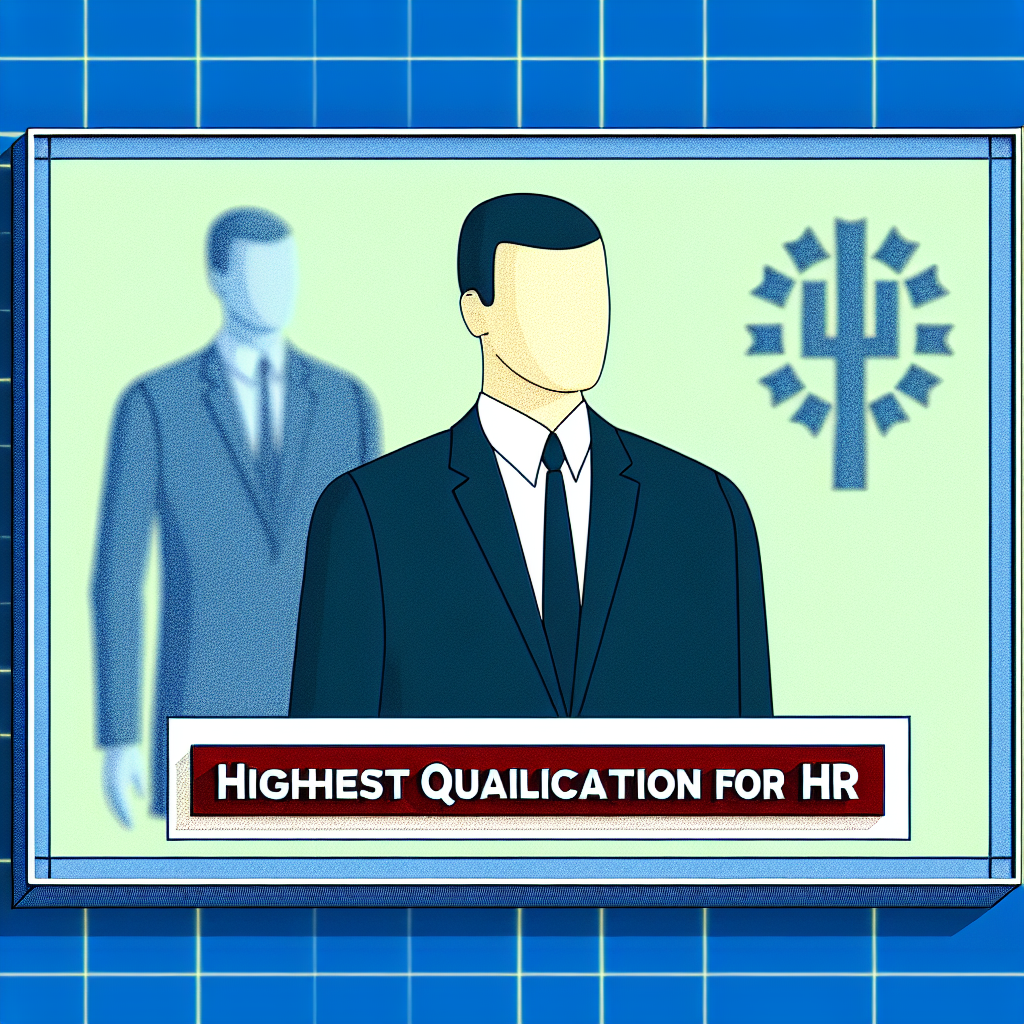
In today’s competitive job market, the significance of advanced qualifications in Human Resources (HR) cannot be overstated. As businesses evolve and HR functions become more intricate, HR professionals must be equipped with the knowledge and skills necessary to navigate these changes effectively. For those aiming to ascend the ladder in their HR careers, a master’s degree in Human Resource Management (HRM) stands out as a highly desirable qualification. This blog post aims to explore the importance of such advanced education, current trends in the HR field, the benefits it offers, and how it aligns with market demands.
Significance of Advanced Qualifications in HR
A master’s degree in HRM serves as a cornerstone for achieving senior-level positions within the HR field. This advanced qualification not only deepens an individual’s technical understanding of various HR functions but also equips them with essential managerial skills. Here are several key areas where a master’s degree proves to be invaluable:
Understanding Complex HR Functions
HR managers are responsible for a myriad of tasks that require a sophisticated understanding of the workplace dynamics. These include:
- Executive Communication: Effective communication with senior management and stakeholders is essential for strategic decision-making.
- Budget Management: Managing financial resources efficiently is crucial for the sustainability of HR programmes.
- Labour Relations: Building and maintaining healthy relationships between employees and management is key to avoiding conflicts.
- Diversity and Inclusion Strategies: Promoting an inclusive workplace aligns with both ethical standards and business objectives.
Current Trends in the HR Job Market
As of 2024, the HR job market is witnessing a surge in demand for qualified professionals. The Bureau of Labor Statistics (BLS) reports that positions such as Chief Human Resources Officer (CHRO) and Compensation and Benefits Manager are among the highest paying in the sector. The increasing complexity of these roles necessitates advanced qualifications.
Job Market Demand
The employment landscape for HR professionals is robust, with many organisational leaders seeking individuals who possess the advanced expertise required for strategic planning and execution of HR functions. Here’s a closer look at key trends:
- Hiring for Strategic Roles: Organisations are increasingly placing value on HR professionals who can contribute to company strategy.
- Specialised Skills Required: HR roles now demand specialised knowledge in areas like compliance, employee relations, and organisational development.
Specialised Skills
With the business environment rapidly changing, HR professionals must stay current with industry trends and best practices. Many HR degree programmes now incorporate preparation for certifications such as those offered by the Society of Human Resource Management (SHRM) and the HR Certification Institute (HRCI), enhancing graduates’ qualifications and market readiness.
Key Benefits of Pursuing a Master’s Degree in HRM
Investing in a master’s degree in HRM comes with several advantages that can significantly impact one’s career growth and opportunities. Here, we explore the top benefits:
Enhanced Marketability
In a competitive job market, standing out is crucial. Holding a master’s degree in HRM enhances an individual’s appeal to potential employers. It signifies a higher level of expertise and commitment to the profession.
Career Advancement
The likelihood of career progression increases notably with a master’s degree. Many senior roles either require or prefer candidates with advanced qualifications. This degree can open doors to executive positions, paving the way for leadership opportunities.
Alignment with Industry Standards
Many educational programmes are specifically tailored to meet recent industry standards, ensuring that the curriculum is comprehensive and relevant. Graduates are not merely equipped with theoretical knowledge but also practical skills that position them favorably in the job market.
Conclusion
In summary, while a bachelor’s degree may suffice for entry-level HR positions, a master’s degree in HRM stands out as the highest qualification for HR managers in 2024. This advanced degree provides the crucial knowledge and skills necessary for handling complex HR functions and enhances marketability, while also signalling career ambition to potential employers. As businesses continue to evolve, the demand for HR professionals who are well-prepared to manage strategic HR functions will only intensify.
To gain further insights into the qualifications required for a Human Resources manager, consider exploring resources from reputable institutions such as NDNU, Franklin University, and SNHU.
As we look to the future, HR professionals must commit to lifelong learning and continuous development, ensuring that they remain invaluable assets to their organisations. By pursuing advanced education, they not only enhance their own careers but also contribute to the overall success of the businesses they serve.
The HR landscape is changing, and those who invest in their education today will be better prepared for the challenges of tomorrow.
Vadim Kouznetsov is a distinguished entrepreneur and the visionary founder and CEO of JobXDubai.com, the UAE’s rapidly expanding job board. Renowned for his expertise in bridging the gap between job seekers and employment opportunities, Vadim has become a leading authority in the recruitment and job market of Dubai.
